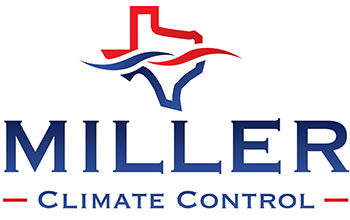Purchasing your first home is thrilling. You’re likely trying to keep track of numerous details to ensure you’re making the right choice. We believe that understanding your future HVAC system is vital. The property’s HVAC system represents a substantial investment and source of potential long-term costs, so being thorough should be a top priority for first-time homebuyers.
In this guide, we’ll share seven tips for learning everything you can about a home’s heating and cooling system. And if you want a more in-depth opinion from the experts, feel free to call Miller Climate Control LLC. Our staff can weigh in on your options with industry insights that are second to none.
1. Which Kind of HVAC System Does the Home Use?
Start by determining what specific HVAC system the home has. Furnaces generally last longer compared to air conditioners, and relatively new types of HVAC equipment like heat pumps boast average life spans that are impressively long. Knowing the make and specific model provides a much better sense of how much it might cost in upkeep over time.
2. What Is the Current System’s Age?
It’s just as smart to learn how old the HVAC system is when you’re considering a new home. For the most part, HVAC systems last about 10-12 years. Learning its approximate installation date helps you prepare for any needed servicing or when it might eventually stop working. Older systems are at a higher risk of problems, so fiscal planning for a replacement unit could be necessary sooner than you thought.
3. Is the Warranty Still in Effect?
Check if the HVAC system is covered by a warranty. If it is, this can lighten the load for maintenance expenses. HVAC warranties should take care of parts and labor, but it’s important to note that details will vary. Review any terms you don’t recognize to ensure you understand your coverage and the likelihood of out-of-pocket costs.
4. Does the System Have a Documented Maintenance History?
Don’t forget to check the maintenance history of the HVAC system, if this kind of history is available. This service history can demonstrate if the repair needs are high or how often a tune-up was scheduled. Ask about records for key tasks like filter changes, which is a positive sign indicating regularly scheduled tune-ups.
5. What Are the Energy Efficiency Ratings?
Finding a home that features an HVAC system with high energy efficiency can lead to smaller utility bills and less of an impact on the environment. Locate the seasonal energy efficiency ratio (SEER) ratings for air conditioning along with the annual fuel utilization efficiency (AFUE) for furnaces. High SEER ratings mean more efficient cooling throughout the season, while higher AFUE ratings illustrate that the fuel is more effectively burned for useable heat.
6. Can You Spot Trouble After Completing an Informal Inspection?
Even without experience in HVAC systems, you should still examine the HVAC system on your own. Watch closely for signs of problems that haven’t been mentioned by the seller. This might consist of odd sounds, stubborn patches of the house that are too hot or cold and attempts to cover up any obvious damage.
7. Have You Sought Out Expert Advice?
If you’re not quite sure about the condition of the HVAC system, it’s wise to get input from experienced HVAC professionals. They are skilled at identifying things you may not know about, such as leaks in the refrigerant, bad electrical connections or inefficient ductwork.
A Consultation with Miller Climate Control LLC Simplifies Your Home-Buying Journey
Selecting your first home ought to be exciting, and Miller Climate Control LLC can ensure that doesn’t change. Reach out with us at 512-379-6873. We can talk about how our HVAC services ease your mind, giving you what you need to step into your new home with confidence.

